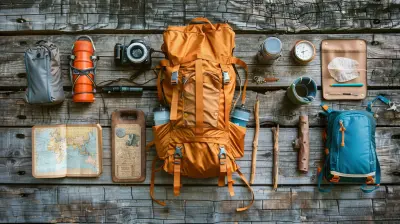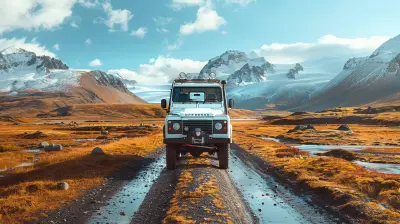Discovering the Untamed Beauty of Glacier Hikes
23 August 2025
Have you ever dreamed of walking on ancient ice, surrounded by towering peaks and breathtaking landscapes? Glacier hikes offer an adventure like no other. With every step, you're treading on centuries-old ice, carving your way through an untouched wilderness. Whether you're a seasoned hiker or a beginner, there's something awe-inspiring about trekking across a frozen wonderland.
In this guide, we'll dive into everything you need to know about glacier hiking—the best locations, essential gear, safety tips, and why this thrilling experience should be on every adventurer’s bucket list.
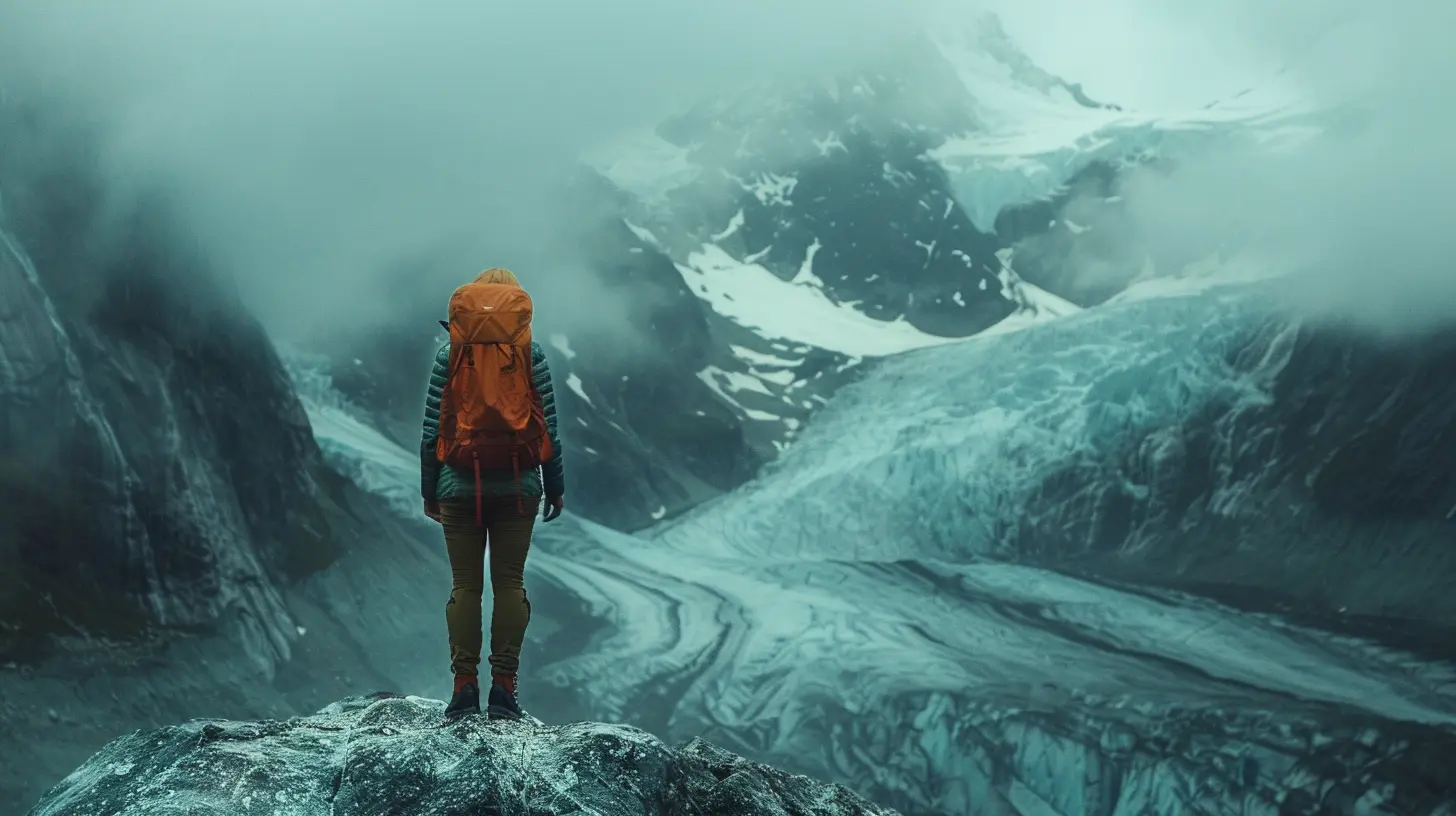
Why Glacier Hiking is an Unforgettable Experience
Imagine standing atop a massive glacier, feeling the crisp, icy breeze against your skin. The crunch of ice beneath your boots is the only sound breaking the silence. Glacier hiking isn't just about the physical challenge; it's about immersing yourself in an environment that's both beautiful and extreme.Glaciers are constantly moving, shaping the mountains and valleys around them. Walking on one is like stepping into a time capsule, where each layer of ice tells a story thousands of years old. It's nature at its most raw and powerful—something you truly have to experience to understand.
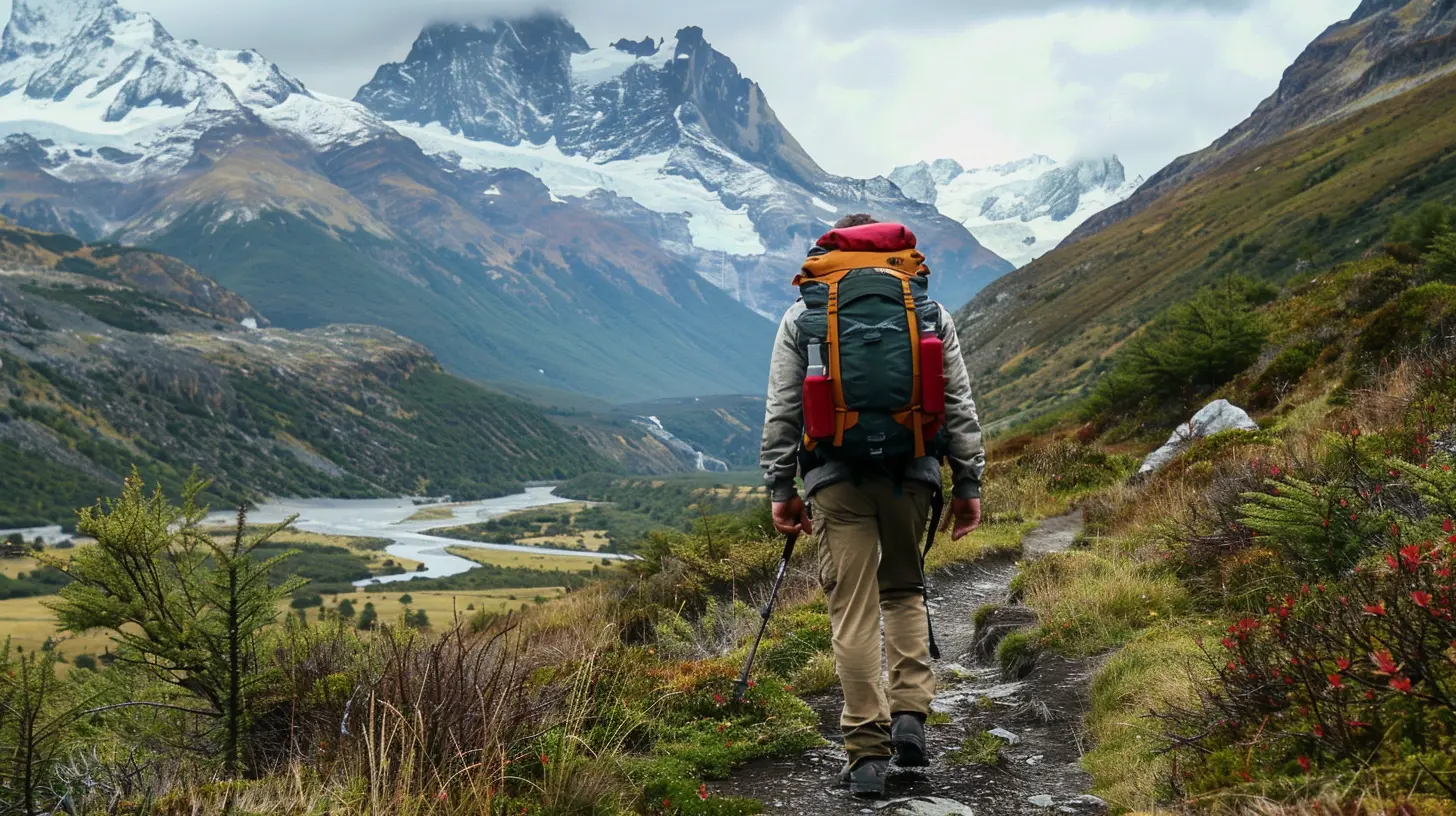
Best Glacier Hikes in the World
Not all glaciers are created equal! Some offer easy, guided walks, while others demand technical skills and mountaineering experience. Here are some of the most stunning glacier hikes around the world:1. Perito Moreno Glacier, Argentina
Located in Patagonia, Perito Moreno is one of the few glaciers in the world that is still advancing. Hikers can embark on a guided trek, navigating deep crevasses and ice caves. If you're lucky, you might witness massive chunks of ice calving into the turquoise waters below.2. Vatnajökull Glacier, Iceland
Iceland is famous for its otherworldly landscapes, and Vatnajökull, the largest glacier in Europe, doesn't disappoint. With ice caves, dramatic blue ice formations, and volcanic ash patterns, hiking here feels like stepping onto an alien planet.3. Fox and Franz Josef Glaciers, New Zealand
These two glaciers on New Zealand’s South Island offer spectacular hikes through a unique mix of temperate rainforest and ice. You’ll navigate towering ice walls and deep crevasses while soaking in the stunning alpine scenery.4. Jostedalsbreen Glacier, Norway
As the largest glacier in mainland Europe, Jostedalsbreen offers multiple hiking routes, ranging from beginner-friendly walks to intense, multi-day glacier treks. The views of fjords and valleys below are jaw-dropping.5. Athabasca Glacier, Canada
Located in the Canadian Rockies, Athabasca Glacier is one of the most accessible glaciers in North America. While it’s rapidly receding, trekking across its icy expanse provides an up-close look at the power of glacial erosion.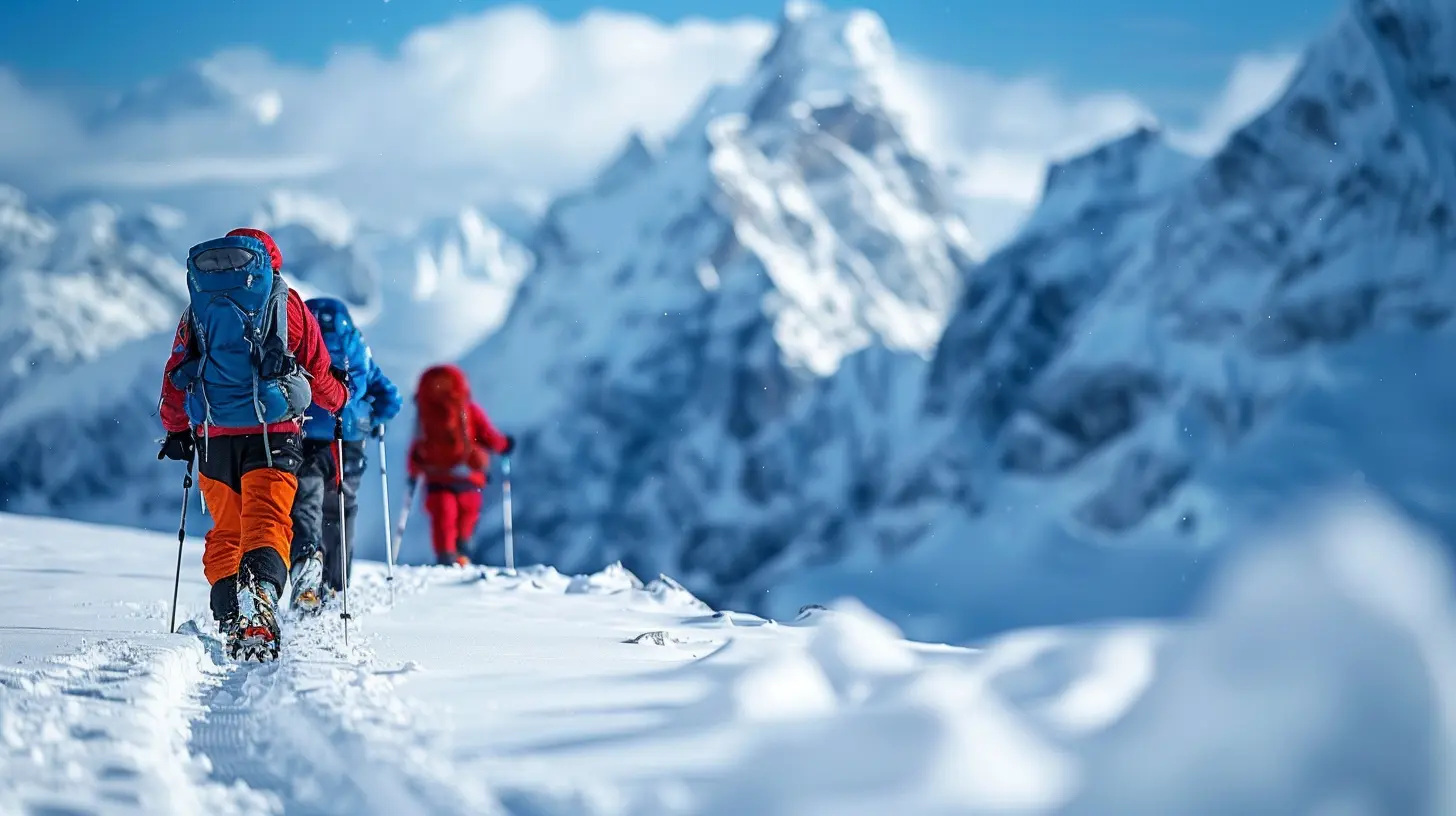
Essential Gear for Glacier Hiking
Hiking on a glacier is nothing like a regular trail walk. The conditions are extreme, and the terrain is unpredictable. Here’s what you need for a safe and enjoyable glacier adventure:1. Crampons
Crampons are metal spikes that attach to your boots, giving you grip on the ice. Without them, walking on a glacier is like trying to walk on a skating rink in sneakers—slippery and dangerous.2. Ice Axe
An ice axe helps with balance and can be a lifesaver if you need to stop yourself from sliding down an icy slope.3. Layered Clothing
Glacier temperatures can change quickly. Dress in moisture-wicking base layers, insulating mid-layers, and a waterproof outer layer to stay warm and dry.4. Helmet and Harness
If you're tackling steep sections or walking near crevasses, a helmet and harness are essential for safety.5. Sunglasses & Sunscreen
Glacier surfaces reflect a ton of sunlight, which can cause snow blindness and severe sunburn. A good pair of UV-protected sunglasses and strong sunscreen are must-haves.6. Gloves and Gaiters
Keep your hands warm with insulated gloves, and wear gaiters to prevent snow and ice from getting into your boots.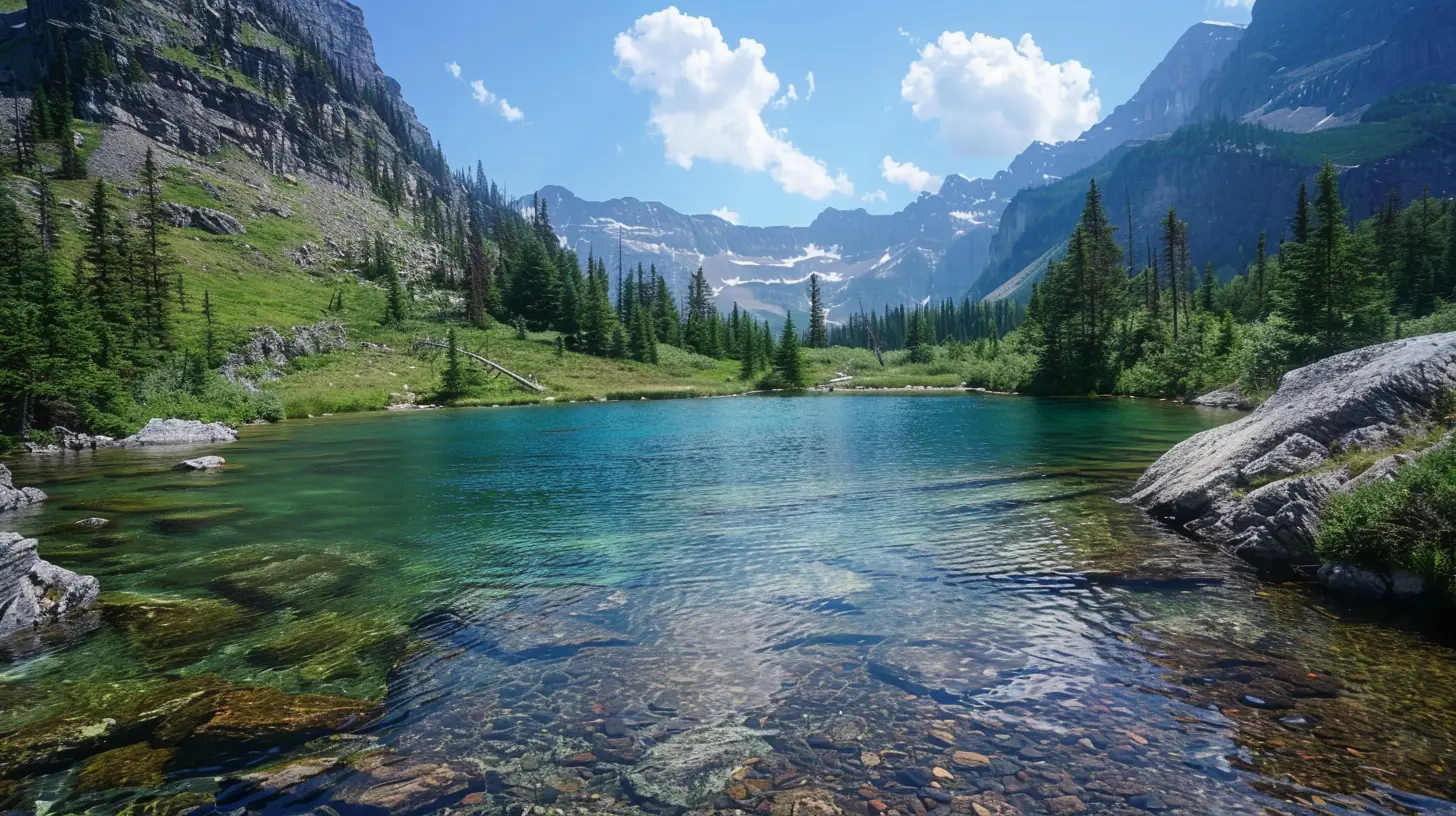
Safety Tips for Glacier Hiking
Glaciers are stunning but dangerous. Hidden crevasses, sudden weather changes, and unstable ice formations make it essential to take precautions. Here’s how to stay safe:1. Go with a Guide (If You're Not Experienced)
Unless you're a trained mountaineer, always hike glaciers with a professional guide. They know the safest routes and can help in case of an emergency.2. Always Check the Weather
Glacier conditions change rapidly. High winds, whiteouts, or sudden snowfalls can turn a hike into a survival situation. Always check forecasts before heading out.3. Watch for Crevasses
Crevasses are deep cracks in the glacier. Some are obvious, but others can be hidden beneath thin layers of snow. Always follow designated paths and use a rope system when necessary.4. Stay Hydrated and Fueled
Cold temperatures can be deceiving—you might not feel thirsty, but your body is still losing moisture. Keep hydrating and snack frequently to maintain energy levels.5. Respect the Glacier
These icy giants are fragile ecosystems. Avoid littering, and never attempt risky stunts for photos. Your safety is far more important than a social media post.The Best Time to Go Glacier Hiking
The best season for glacier hiking depends on the location. Here’s a general guide:- Summer (June - September): Ideal for glacier hikes in regions like the Alps, Iceland, and Canada. The weather is more stable, and guided tours operate frequently.
- Winter (December - February): Perfect for exploring ice caves that form in glaciers, especially in Iceland. However, deep snow can make trekking more challenging.
- Spring & Fall: Conditions can be unpredictable, with melting ice making the terrain unstable. Some glaciers may be unsafe to hike during this time.
Why Glacier Hiking is Worth the Effort
Sure, you could admire glaciers from a viewpoint, but nothing compares to standing right on top of one. The surreal beauty, the crunch of ice underfoot, and the sheer scale of these frozen behemoths make the experience unforgettable.Glacier hikes push you out of your comfort zone, immersing you in landscapes that few people ever get to see up close. It’s not just an adventure—it’s a reminder of nature’s raw power and fragility.
So, if you're craving a one-of-a-kind journey, strap on some crampons, grab an ice axe, and step onto the frozen wild. Because some experiences are just too extraordinary to miss.
all images in this post were generated using AI tools
Category:
Hiking TrailsAuthor:

Claire Franklin
Discussion
rate this article
2 comments
Nora Long
What a beautifully written piece! Your vivid descriptions truly capture the essence of glacier hikes. I’m inspired to explore this untamed beauty firsthand. Thank you for sharing your insights!
November 7, 2025 at 5:49 PM

Claire Franklin
Thank you so much for your kind words! I'm thrilled to hear you're inspired to explore glacier hikes. Enjoy the adventure!
Joel McQuaid
What a breathtaking adventure! Glacier hikes offer a perfect blend of stunning landscapes and exhilarating experiences. The untouched beauty of nature truly captivates the soul. Can’t wait to lace up my boots and explore these icy wonders! Thanks for sharing these inspiring insights!
August 24, 2025 at 4:37 AM

Claire Franklin
Thank you! I'm thrilled to hear you're inspired to explore the glaciers—it's truly an unforgettable experience! Happy hiking!
